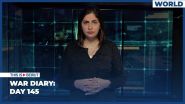- Home
- War in the Middle East
- Gaza’s Ceasefire Faces Multiple Hurdles

International and regional pressure on the warring parties, especially Israel and the obstructionist axis (Hezbollah and its allies), is intensifying. This comes after the renewal of hostilities and the refusal to prolong the humanitarian ceasefire, which was hoped to halt military operations, lead to the unconditional release of all prisoners and hostages held by both parties, and initiate negotiations to resolve the Arab-Israeli conflict through the two-state solution.
Many hurdles continue to thwart international efforts which aim to achieve a sustainable ceasefire and compel Israel to acknowledge the establishment of an independent Palestinian state. The biggest challenge is simply Israel, namely the steadfast determination of Prime Minister Benjamin Netanyahu and his government to persist in the conflict. Their motivation stems from the desire to preserve Israel's military standing and circumvent potential legal scrutiny. Netanyahu and some members of his government face the prospect of legal accountability, and he will end up bearing the brunt of the most severe and painful blow in Israel’s history. In addition, Tel Aviv is determined to dismantle the military apparatus of both Hamas and Hezbollah, a condition deemed imperative to ensure the safe return of settlers to the Gaza "envelope," or periphery, and to settlements near the Lebanese border. An additional obstacle is the implementation of Resolution 1701, which restricts the presence of weapons and armed individuals south of the Litani River—specifically in the international zone monitored by UNIFIL—to the Lebanese army and legitimate security forces. The last obstacle pertains to Israel’s rejection of the two-state solution, insisting on a solution involving one state only: Israel. The latter would encompass both Jewish and Palestinian populations. It would be recognized as a Jewish state in order to safeguard its continuity amid an anticipated Palestinian demographic increase.
Next comes the Palestinian hurdle that steadfastly advocates the establishment of an independent Palestinian state with Jerusalem as its capital, rejecting all integration into the Jewish state of Israel. Another hurdle is Hamas’s role in the negotiations, and Palestinian rejection of Israel’s condition of a demilitarized Palestinian state. Moreover, the factions backed by Iran will hold Israel responsible for the massacres and destruction in Gaza and the West Bank. They would require that Israel compensate for the damages sustained in the war and be sanctioned through the International Court of Justice.
In a related development, the fourth visit of US Secretary of State Antony Blinken to Israel came in parallel with meetings in Qatar between the Director of the Central Intelligence Agency and the National Security Advisor with their Israeli, Arab and Palestinian counterparts. The objective is to advocate for a ceasefire and secure Israel’s recognition of the two-state solution. This comes amid Arab pressure urging Palestinians to swiftly adapt to unfolding developments and take proactive measures ahead of negotiations leading to a restructuring of the Palestinian Authority and inclusion of emerging figures from various organizations and factions. The aim is to establish a new official authoritative body that would act as the legitimate representative of the Palestinian people and hence position itself as the primary negotiator in resolving the longstanding conflict. These efforts align with pressures to prevent the escalation of hostilities, achieve ceasefires on all fronts, return to humanitarian truces, and prevent the expansion of the conflict to the front with Lebanon, which is contained, so far, as per an Iranian decision. Some factions of the obstructionist axis, especially Hezbollah, aspire to maintain controlled tension in the south. This strategic move serves as a powerful card in Iran's hand, reinforcing its position in negotiations with the US.
According to a Western diplomat, the upcoming phase is primed for a clash between two opposing forces. An Israeli extremist movement facing an extremist Palestinian one. The first one advocates continuing the conflict in order to neutralize Hamas and secure the settlements. Concurrently, the Palestinians are actively seeking to challenge the perceived invincibility of the Israeli army, which suffered losses in both personnel and equipment at the hands of Hamas.
Meanwhile, Arab and international parties are striving to cease the war machine and begin negotiations for a comprehensive peace settlement and a two-state solution.
Against this regional backdrop, the fourth visit of French president Emmanuel Macron’s envoy Jean-Yves Le Drian to Lebanon was on behalf of the Paris Quintet (France, Saudi Arabia, the US, Qatar and Egypt), as officially stated. Le Drian dismissed the presence of any differences or divergences among the quintet’s members, emphasizing their unified and cohesive stance.
The French envoy's visit was strategically framed around security concerns, with a clear objective: "preventing the escalation of hostilities and avoiding Lebanon’s entanglement in the conflict through the so-called ‘supportive’ southern front, out of concern of a potentially destructive Israeli response."
Other objectives of Le Drian’s visit include an unwavering commitment to the implementation of Resolution 1701 and the extension of Army Commander-in-Chief General Joseph Aoun’s mandate until a new president is elected.
Read more



Comments